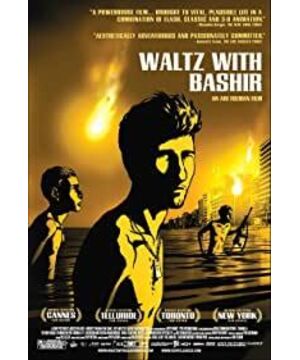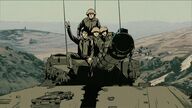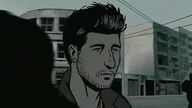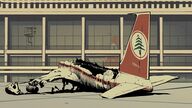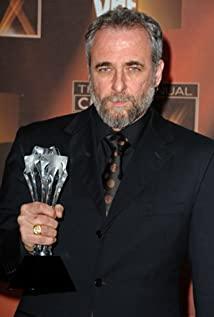Speaking of directors, Ali. Forman, who was an Israeli soldier who witnessed and participated in this war with his own eyes at that time, of course, this film also obviously has too many memories of him. Through his eyes, he told each of us the horrors of that night, and that is the introduction to the film. Quoting a comment from the European Times, the film uses animation to restore cruel history and accuse the atrocities of war. In my opinion, so to speak, this is what a good documentary should have. However, anyone who has seen the film should feel that there are too many subjective thoughts and feelings of the director in this film, as well as a lot of psychological analysis unrelated to the war, so it cannot be regarded as a restoration and reproduction in a true sense. But it should be that the memories of that night in the director's mind were pulled out without modification and displayed to the world and to himself. That can't be called reality, it should be a dream, and a nightmare. The animation techniques and gloomy tones in the film are a reflection of his true inner feelings, a kind of self-protection mechanism. The director kept asking himself, should he face the darkness or escape? For dreams, should we face them or avoid them? So what about reality?
In the end, he made a choice to face the darkness, the dream, and the reality. So at the end of the film, the director tore his own layer of self-protection mechanism. The animation technique is over, the nightmare is over, and what follows is the shocking set of real shots that everyone saw.
So I think this is not a documentary or an animation, just because the background of the whole film is set in the massacres in Beirut's Sabara and Shatila refugee camps and involves a lot of Israeli-Palestinian wars, so it is taken for granted. Put on the political hat. However, when I experienced this film many times, I gradually realized that those are just the background of the film, and the content of the film is not only to represent the review and reflection of the Israeli government and people on the world, It is not just a superficial exposure of the cruelty and ruthlessness of war, but an analysis of the cold memory in his heart and his own process of relief from that nightmare. It is a film that explores the inner world of human beings. . It’s just that in these explorations of his, we have seen the torment and pain brought by the war. No matter which side of the war, it is the same pain. It comes from the body and the soul. It is the same. , as well as the liberation of the self, are all reflecting the destruction of the human heart by the war. I think this is really the main theme of the film.
Waltzing with Bashir, dancing with the devil, mad and lost.
Ok.
Good morning, Lebanon
Good night, war.
View more about Waltz with Bashir reviews


